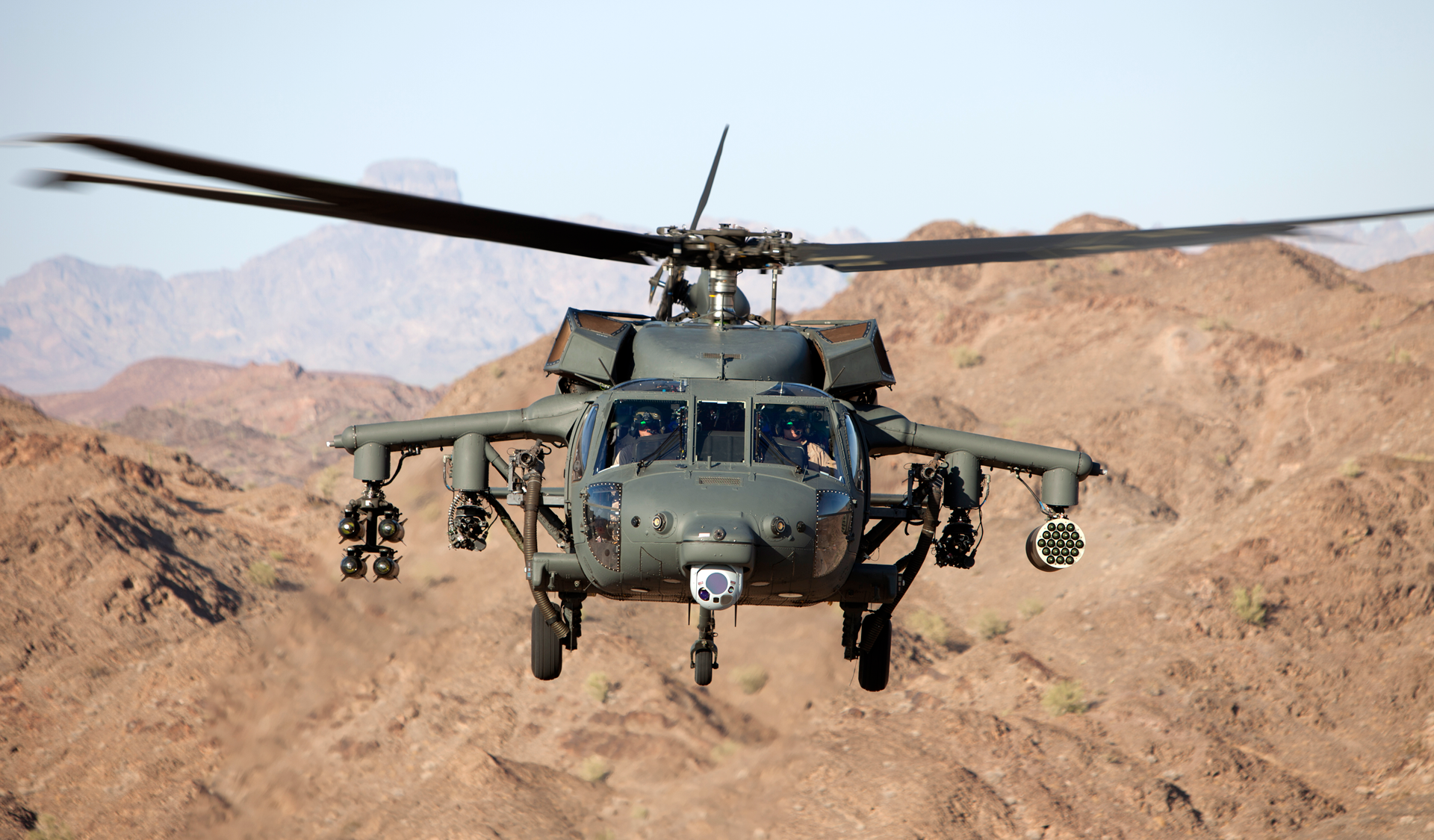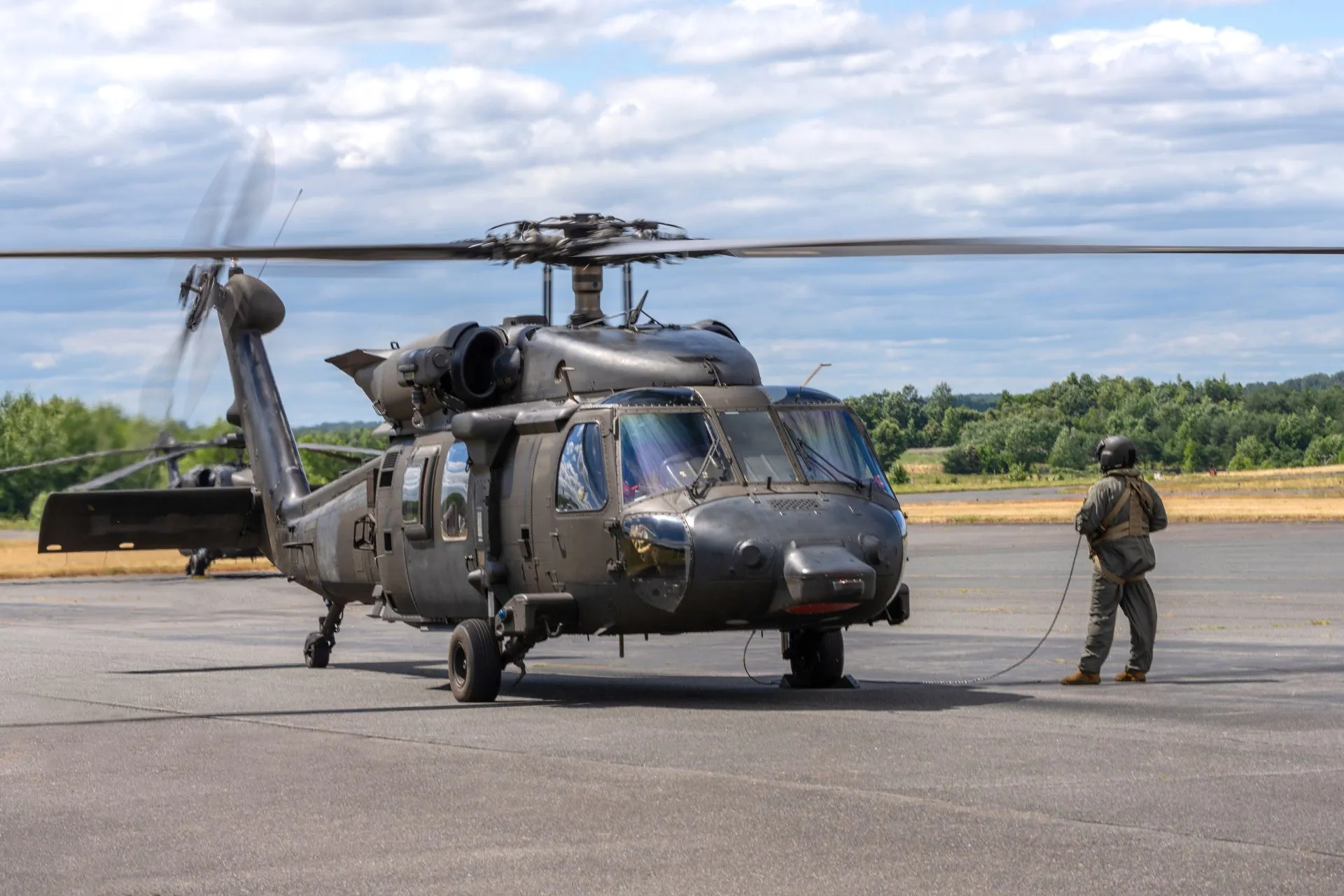Check Out the Key Functions and Missions of the Blackhawk Helicopter Around the World
Check Out the Key Functions and Missions of the Blackhawk Helicopter Around the World
Blog Article
Checking Out the Thrills and Innovations of the Blackhawk Helicopter
The Blackhawk helicopter stands as a testimony to army aeronautics's evolution, merging technological innovations with practical applications. Because its introduction in the 1960s, it has changed the landscape of airborne support, boasting attributes that enhance its performance in various operational roles. As we investigate its historical significance and crucial advancements, one must consider how upcoming advancements may redefine its abilities. What lies in advance for this iconic airplane, and exactly how will emerging technologies form its future in armed forces operations?
Background of the Blackhawk Helicopter
Because its creation in the 1960s, the Blackhawk helicopter has actually played an essential duty in contemporary military aviation. Created by Sikorsky Aircraft, the UH-60 Blackhawk was developed to fulfill the united state Military's requirement for a flexible energy helicopter qualified of performing a variety of objectives, including troop transport, clinical evacuation, and freight airlift. The design was a reaction to the limitations of earlier helicopters, especially in terms of survivability, ability to move, and speed.
The Blackhawk made its first flight in 1974 and quickly got in service in 1979. Its intro marked a considerable improvement in helicopter innovation, including a two-rotor system that enhanced efficiency and security. The aircraft's tough building and progressed avionics permitted it to run efficiently in diverse settings and problems.
Throughout the years, the Blackhawk has been continually updated, including lessons discovered from numerous fight circumstances. Its implementation in problems such as the Gulf War, Somalia, and the War on Horror more solidified its track record as a crucial property. The Blackhawk's tradition is defined by its adaptability and durability, making it a foundation of army aviation for years.
Key Functions and Specifications
The Blackhawk helicopter is identified by its durable style and advanced technical features, which collectively enhance its operational abilities. Made largely for utility missions, the Blackhawk flaunts a maximum takeoff weight of around 22,000 pounds, allowing it to carry substantial hauls while maintaining agility.
Equipped with two General Electric T700-GE-701C engines, the Blackhawk accomplishes a maximum speed of around 183 knots and a variety of 368 maritime miles - Blackhawk Helicopter. Its state-of-the-art blades system includes a four-blade primary rotor and a four-blade tail blades, making sure stability and maneuverability in various flying problems
The helicopter's cabin can suit up to 11 troops or numerous cargo configurations, showcasing versatility in mission accounts. Additionally, the Blackhawk is created with sophisticated avionics, including electronic flight controls and a thorough cockpit screen, enhancing pilot situational recognition.
For enhanced survivability, the Blackhawk includes ballistic shield and self-sealing gas tanks. Its capability to operate in varied settings, from deserts to icy terrains, even more strengthens its reputation as a dependable platform for altruistic and army procedures alike. The Blackhawk's combination of power, flexibility, and resilience makes it a cornerstone of modern aerial capacities.
Improvements in Modern Technology
Technologies in innovation have actually substantially boosted the capacities of the Blackhawk helicopter, ensuring it remains at the leading edge of armed forces aeronautics. One of one of the most notable innovations is the assimilation of sophisticated avionics systems, which supply enhanced situational understanding via real-time information handling and screen. This technology allows pilots to browse complex environments much more successfully, enhancing goal success rates.

Additionally, the intro of digital fly-by-wire systems has actually reinvented the control mechanisms of the Blackhawk, providing smoother handling and increased responsiveness. Collectively, these technical advancements guarantee that the Blackhawk helicopter remains a crucial possession in modern-day armed forces operations.
Functions in Armed Force Workflow
With sophisticated innovation boosting its capacities, the Blackhawk helicopter plays a complex role in army operations. Primarily, it is employed for army transport, allowing quick deployment and removal of see it here workers in numerous fight situations. Its this hyperlink sizable cabin can suit approximately 11 soldiers, making it an important possession for unique operations and large goals.
In Addition, the Blackhawk acts as a medevac system, furnished to move wounded soldiers quickly and effectively from the field of battle to clinical centers - Blackhawk Helicopter. Its adaptability reaches logistical assistance, where it brings products and equipment vital for maintaining army procedures in remote locations

The helicopter is additionally crucial in reconnaissance goals, offering airborne surveillance and intelligence-gathering capabilities. Its capacity to run in diverse settings-- varying from urban settings to extreme surfaces-- more strengthens its value on the field of battle.
Furthermore, the Blackhawk can be equipped with sophisticated weapons, permitting it to engage in fight and give close air assistance. This adaptability emphasizes the helicopter's important role in modern military approaches, making it an important part of militaries worldwide.
Future Advancements and Innovations
Innovations in modern technology pledge to introduce a new age for the Blackhawk helicopter, enhancing its abilities and functional efficiency. As the army landscape evolves, so as well does the emphasis on incorporating innovative technologies into rotary-wing airplane. Future advancements for the Blackhawk might include improvements in avionics, such as sophisticated flight control systems and improved situational understanding tools powered by synthetic knowledge. These developments will assist in much more exact navigation and decision-making in complex environments.
Moreover, the assimilation of unmanned systems is on the horizon, potentially allowing for manned-unmanned teaming procedures that can increase objective profiles and reduce threat to employees. The Blackhawk's design is likewise expected to include lighter and stronger products, boosting fuel efficiency and general performance.

Conclusion
In verdict, the Blackhawk helicopter stands for a substantial accomplishment in military aviation, characterized by its versatility and advanced technological functions. Its historical evolution mirrors a regular feedback to operational needs, boosting capacities in various functions such as troop transportation and medevac operations. Recurring technologies, including the integration of expert system and hybrid-electric propulsion, promise to further reinforce the Blackhawk's efficiency and relevance in future military involvements, guaranteeing its standing as a vital asset on the field of battle.

With innovative technology boosting its capacities, the Blackhawk helicopter plays a multifaceted duty in army procedures. (Blackhawk Helicopter)
Report this page